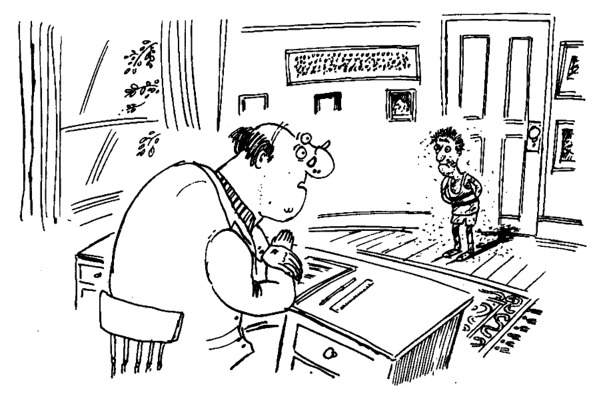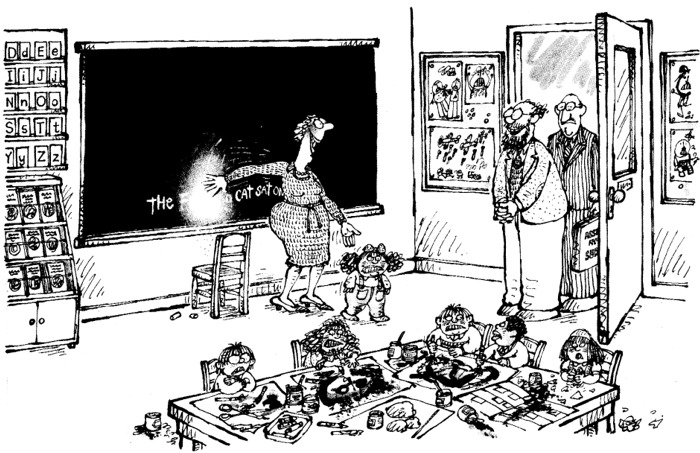
WS 2011/2012 exam translation (advanced) (Staatsexamen, Herbst 1989) text #1
By 1900 public schools (1) had become close-knit communities, highly disciplined, obsessed with games, fervently religious, intensely class-conscious and geared to turning out gentlemen all-rounders. To develop physical hardihood there were cold showers (2) cross-country runs, spartan dormitories, outside lavatories and compulsory games. But the schools also sought to give their pupils moral training, to develop self-restraint, a proper sense of values and preparation for the exercise of power. The monastic all-male environment, the playing of games (with the ideas of team spirit, abiding by the rules and being a sporting loser), the cultivation of traditions and rituals (school songs, slang, uniforms and colours) into which all new boys had to be religiously initiated, the strict disciplinary system, the rigidly defined hierarchy through which a boy rose from fag to prefect, all aided in the creation of group loyalty, corporate spirit and elite solidarity. There was also a code of behaviour the boys developed for themselves: no “squealing”, no stealing, cooperative preparation of work, the phlegmatic bearing of all anguish and irritations. This overlapped with and reinforced the code that was imposed on them from above.
The prefect system gave the senior boys a taste of the exercise of power and put them on their honour not to abuse it. The Public School Commission (1864) credited this system with an enormous effect on social life and national character, fostering the special characteristics the British claimed as their own: “their capacity to govern others and control themselves, their public spirit, their vigour and manliness of character, their strong but not slavish respect for public opinion”.
Almost unconsciously the public school boy absorbed a
complete code of behaviour which would enable him to do “the right thing” in
any situation. It produced the gifted amateur, trained for nothing but ready for
anything, who had a relaxed air of command, a sense of duty and a feeling of the
obligation of the superior to his inferiors. It also involved the traditional
British phlegm, reserve, understatement and the stiff upper lip, a result of the
inculcation of modesty in victory and defeat.
from Jeffrey Richards, Happiest Days. The public schools in English fiction,
Manchester 1988
a)
http://books.google.com/books?id=7RMNAQAAIAAJ&printsec=frontcover&hl=de&source=gbs_ge_summary_r&cad=0#v=onepage&q&f=false
(p. 12-13)
b)
www.alibris.co.uk/booksearch?qwork=2808771&matches=6&author=Richards%2C+Jeffrey&browse=1&cm_sp=works*listing*title
1)
Eton/Windsor special
2) Independent Schools (UK):
http://en.wikipedia.org/wiki/Independent_school_(UK)
3) Public Schools (UK): http://en.wikipedia.org/wiki/Public_school_(privately_funded)
(2) Remember Hitchcock's "PSYCHO"?

![]()
SCHOOL & EDUCATION (1)

![]()
back
to exam
translation WS 2011/2012, index
click for
more school & education
cartoons back to homepage
THE BOTTOM LINE THE BOTTOM LINE THE BOTTOM LINE THE BOTTOM LINE THE BOTTOM LINE THE BOTTOM LINE THE BOTTOM LINE